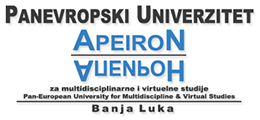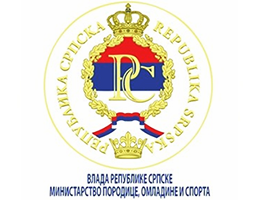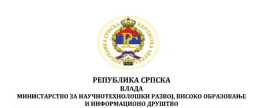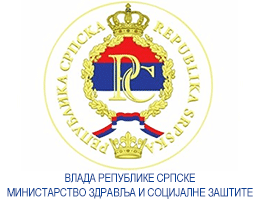The Emotional-Social Interaction Between Teachers аnd Student During тhe Physical Education аnd Sports Lessons
Volume 11, Issue 2 (2021)
Volume 11, Issue 2 (2021)
The Emotional-Social Interaction Between Teachers аnd Student During тhe Physical Education аnd Sports Lessons
Abstract:
The study aimed to find out the correlation between the emotional-social interaction of a professor of physical education and sports and the activity of his students during the physical education and sports lesson. It was used the descriptive approach, and the sample comprised (14) teachers and (398) students from some Middle school of El Bayadh state, and the researchers used the questionnaire form and the Weethol scale to measure the social-emotional interaction. The results showed the existence of a positive and strong correlation between the first three behavioral groups of the tool, and the extent of student activity. The researchers recommend using indirect methods by professors in teaching, whether verbal or kinesthetic.
Keywords:
emotional interaction, physical education, teachers, students
Full Text:
DOI:
References:
Ahmed, H. E. H., Mohammedi, S., Abdelhafid, L., Adel, B., Mohamed, B., & Jacques, G. (2017). study of perception of professional competences in teachers in relation to the requirements of the profession of teaching physical education. European Journal of Education Studies, 3(7), 681.
Andriani, S., Kesumawati, N., & Kristiawan, M. (2018). The influence of the transformational leadership and work motivation on teachers performance. International Journal of Scientific & Technology Research, 7(7), 19‑29.
Ardalan, K. (2008). The philosophical foundation of the lecture‐versus‐case controversy : Its implications for course goals, objectives, and contents. International Journal of Social Economics.
Bailey, R., Armour, K., Kirk, D., Jess, M., Pickup, I., Sandford, R., & Education, B. P. (2009). The educational benefits claimed for physical education and school sport : An academic review. Research papers in education, 24(1), 1‑27.
Belkadi, A., Othman, B., Mohamed, S., M, B. H., Gleyse, J., Adel, B., … Gleyse, J. (2015). Contribution to the Identification of the Professional Skills Profile of Coaches in the Algerian Sport Judo System. International Journal of Sports Science, 5(4), 145‑150.
Cury, F., Biddle, S., Famose, J.-P., Sarrazin, P., Durand, M., & Goudas, M. (1996). Personal and situational factors influencing intrinsic interest of adolescent girls in school physical education : A structural equation modelling analysis. Educational Psychology, 16(3), 305‑315.
Delahunty, J., Verenikina, I., & Jones, P. (2014). Socio-emotional connections : Identity, belonging and learning in online interactions. A literature review. Technology, Pedagogy and Education, 23(2), 243‑265.
Fabelico, F., & Afalla, B. (2020). Perseverance and Passion in the Teaching Profession : Teachers’ Grit, Self-Efficacy, Burnout, and Performance. Journal of Critical Reviews.
Fink, L. D. (2013). Creating significant learning experiences : An integrated approach to designing college courses. John Wiley & Sons.
Ghanizadeh, A., & Moafian, F. (2011). The relationship between Iranian EFL teachers’ sense of self-efficacy and their pedagogical success in Language Institutes. Asian EFL Journal, 13(2), 249‑272.
Gil-Arias, A., Harvey, S., Cárceles, A., Práxedes, A., & Del Villar, F. (2017). Impact of a hybrid TGfU-Sport Education unit on student motivation in physical education. PloS one, 12(6), e0179876.
Haerens, L., Aelterman, N., Van den Berghe, L., De Meyer, J., Soenens, B., & Vansteenkiste, M. (2013). Observing physical education teachers’ need-supportive interactions in classroom settings. Journal of Sport and Exercise Psychology, 35(1), 3‑17.
Händel, M., Stephan, M., Gläser-Zikuda, M., Kopp, B., Bedenlier, S., & Ziegler, A. (2020). Digital readiness and its effects on higher education students’ socio-emotional perceptions in the context of the COVID-19 pandemic. Journal of Research on Technology in Education, 1‑13.
Harahsheh, A. H. (2017). Perceived Self-Efficacy and Its Relationship to Achievement Motivation among Parallel Program Students at Prince Sattam University. International Journal of Psychological Studies, 9(3), 21‑34.
Kirk, D. (2005). Physical education, youth sport and lifelong participation : The importance of early learning experiences. European physica education review, 11(3), 239‑255.
Kirk, D. (2012). Defining physical education (Routledge revivals) : The social construction of a school subject in postwar Britain. Routledge.
Lotkowski, V. A., Robbins, S. B., & Noeth, R. J. (2004). The Role of Academic and Non-Academic Factors in Improving College Retention. ACT Policy Report. American College Testing ACT Inc.
Mohamed, K. S., Mohamed, K., Mohammed, S., Mokrani, D., & Belkadi, A. (2019). The Effect of Heavy Weight Training on Physiological Abilities of Soccer Players Under the Age 21 Years Old. Acta Facultatis Educationis Physicae Universitatis Comenianae, 59(1), 33‑43. https://doi.org/10.2478/afepuc-2019-0004
Moseley, D., Baumfield, V., Elliott, J., Gregson, M., Higgins, S., Miller, J., & Newton, D. P. (2005). Frameworks for thinking : A handbook for teaching and learning. Cambridge University Press.
Papi, M., & Abdollahzadeh, E. (2012). Teacher motivational practice, student motivation, and possible L2 selves : An examination in the Iranian EFL context. Language learning, 62(2), 571‑594.
Pereira, P., Duarte, E., Rebelo, F., & Noriega, P. (2014). A review of gamification for health-related contexts. International conference of design, user experience, and usability, 742‑753. Springer.
Pill, S. (2008). A teacher’s perceptions of the Sport Education model as an alternative for upper primary school physical education. ACHPER Australia Healthy Lifestyles Journal, 55(2‑3), 23‑29.
Renshaw, I., Chow, J. Y., Davids, K., & Hammond, J. (2010). A constraints-led perspective to understanding skill acquisition and game play : A basis for integration of motor learning theory and physical education praxis? Physical Education and Sport Pedagogy, 15(2), 117‑137.
Ryan, R. M., Patrick, H., Deci, E. L., & Williams, G. C. (2008). Facilitating health behaviour change and its maintenance : Interventions based on self-determination theory. The European health psychologist, 10(1), 2‑5.
Sumirattana, S., Makanong, A., & Thipkong, S. (2017). Using realistic mathematics education and the DAPIC problem-solving process to enhance secondary school students’ mathematical literacy. Kasetsart Journal of Social Sciences, 38(3), 307‑315.
Westwood, P. S. (2008). What teachers need to know about teaching methods. Aust Council for Ed Research.
Zepke, N., & Leach, L. (2010). Improving student engagement : Ten proposals for action. Active learning in higher education, 11(3), 167‑177.






